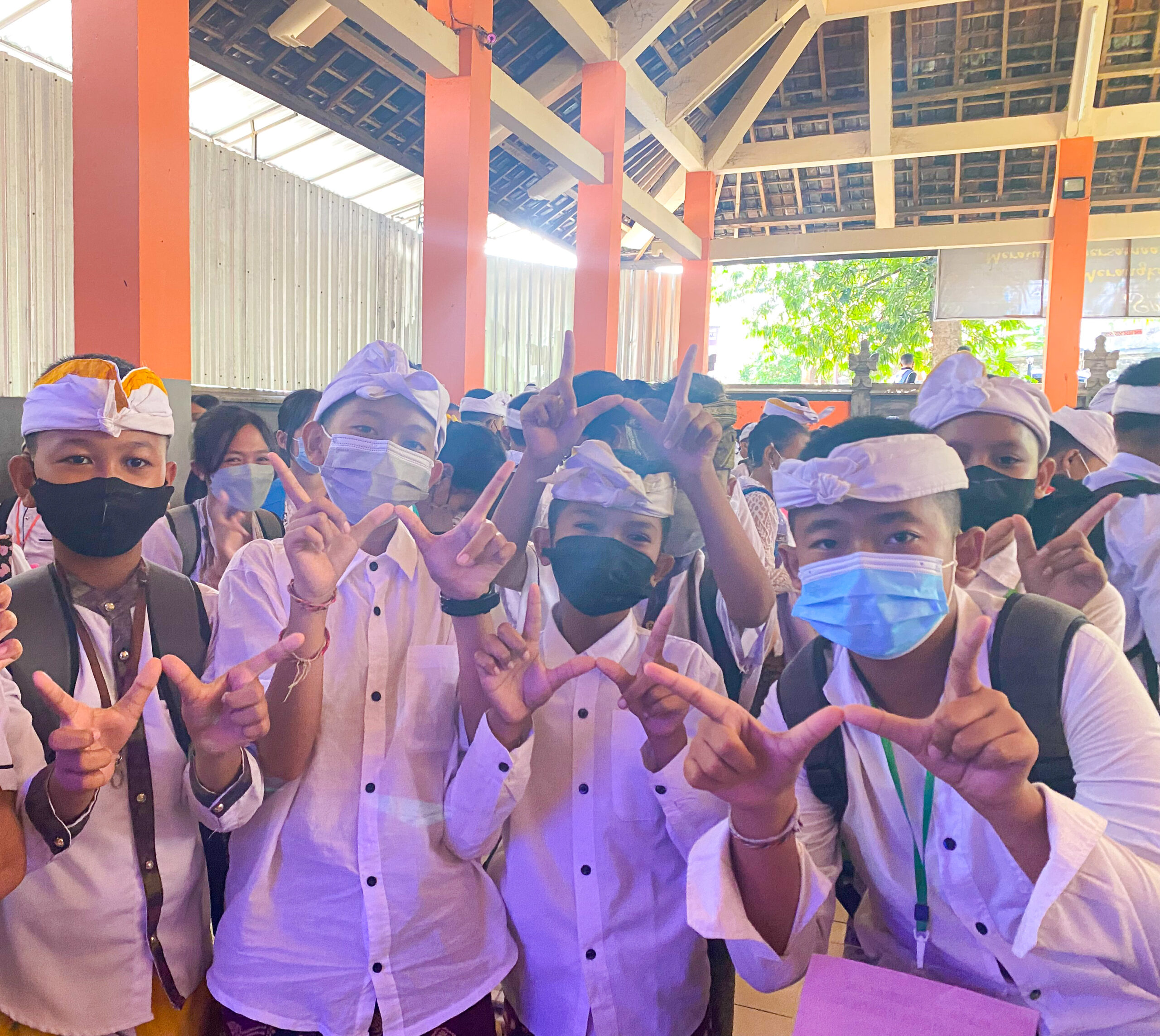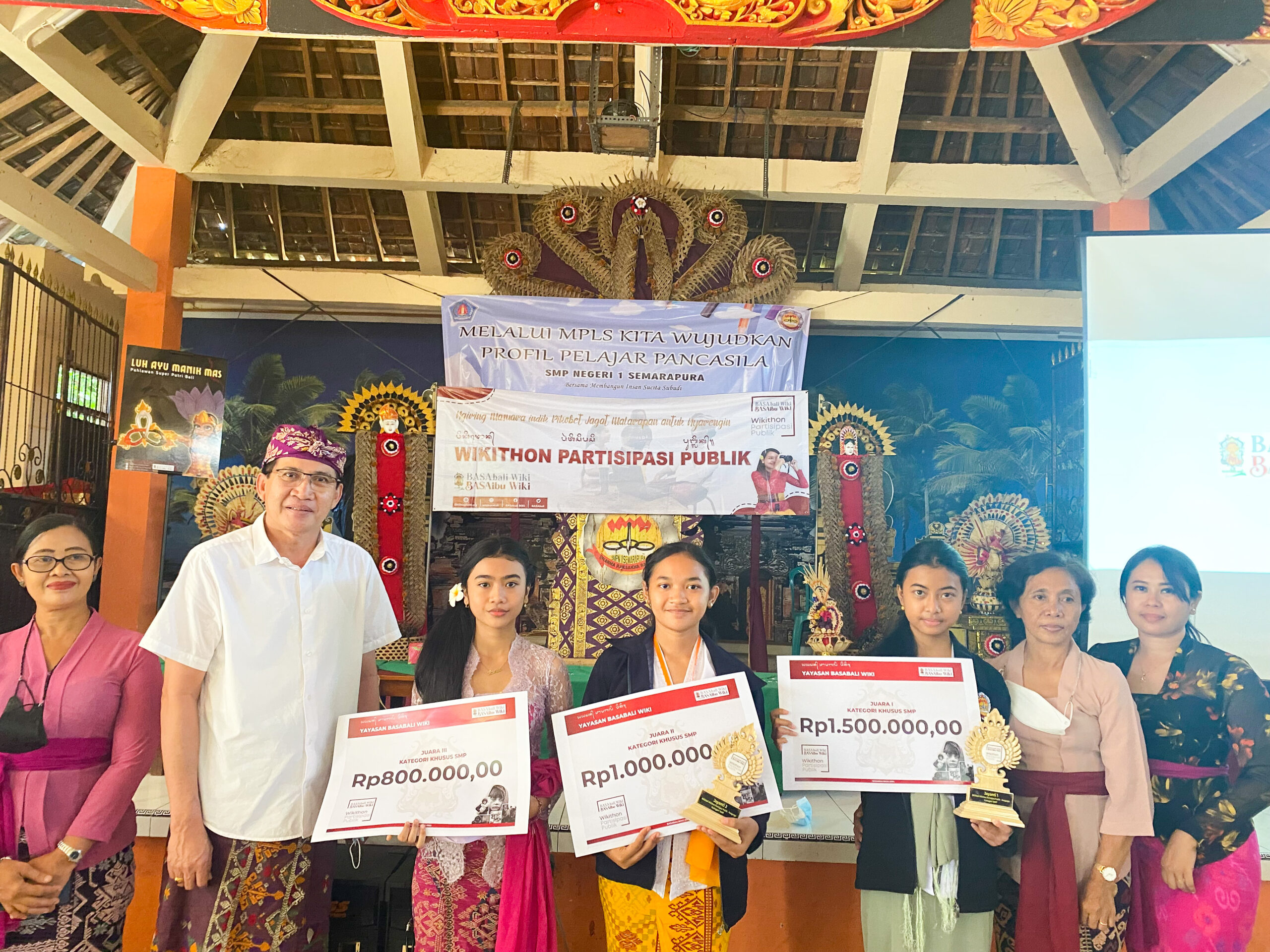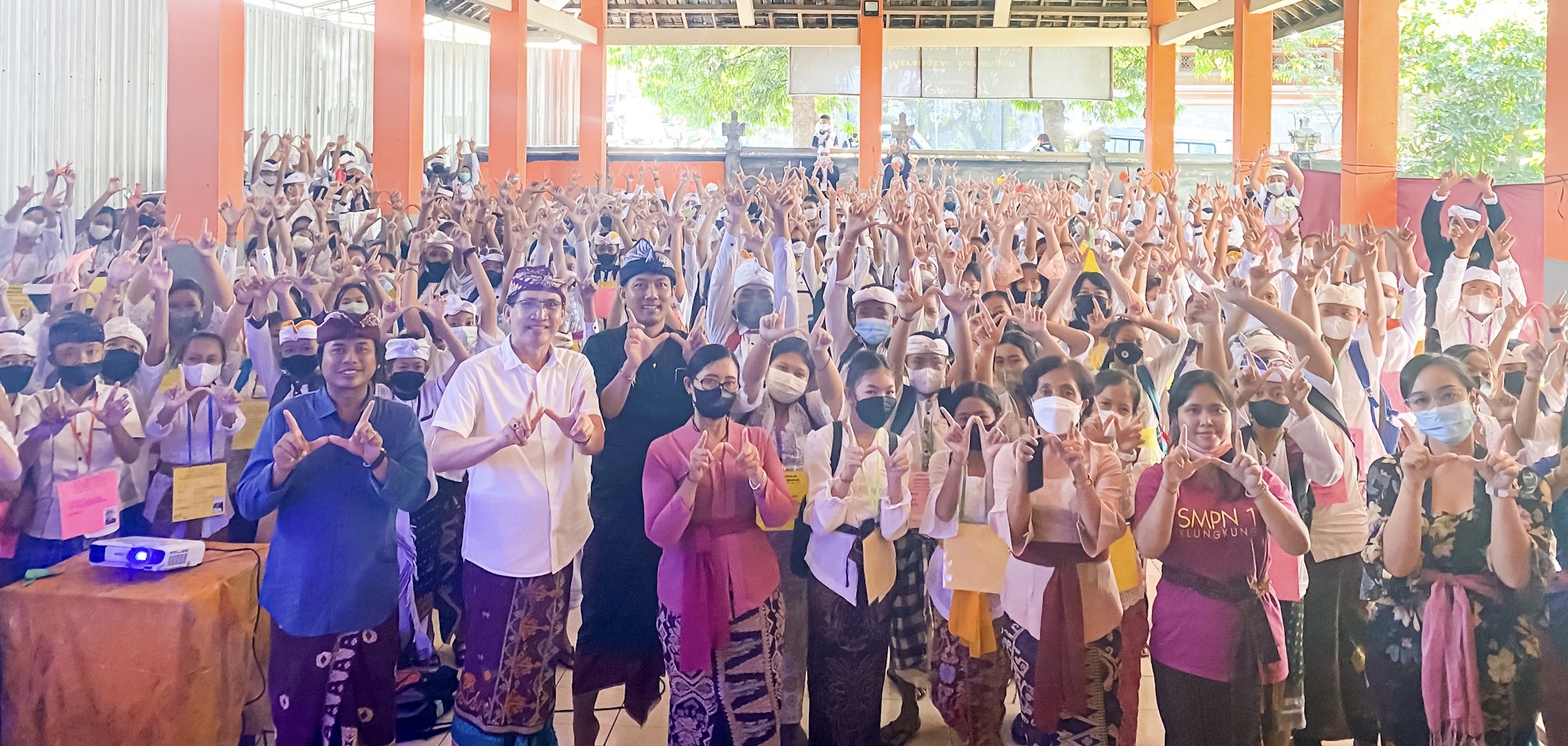Q&A with the Winners: BASAbali Wiki
In this Q&A, BASAbali Wiki talk about their team’s solution — Inclusive Ethical and Equitable Community-developed Digital Town Square — which won the Honorable Mention Community Enablement Proof of Concept prize in the 2022 Connecting the Unconnected Challenge.
1.Please summarize your winning solution

We empower young people in Indonesia to publicly discuss civic issues with policy makers on local language digital platforms. In a country like Indonesia which does not have a tradition of public participation, this is the first time that many young people feel comfortable publicly speaking out about issues of concern to them and the first time that many public officials feel comfortable asking for input from young people. Government officials have gone on social media encouraging the youth to provide feedback on the platform and teachers are now using the platform to teach communication skills, digital literacy, and civic engagement.
The discussions are carried in the local language to increase the comfort level of young people and provide them with the opportunity to express themselves with the nuance of their local language. By asking everyone to use “everyday” local language they would use in person instead of the formal language, we also level the playing field between the public and policy makers. Translations are provided in the national Indonesian language and English as an international language to increase accessibility.
In bimonthly competitions, policymakers pose policy questions and young people respond with text, video, photos, or audio. To increase accessibility and inclusivity as much as possible, we pair the online platform with on-the-ground training for teachers and students, reaching out to villages where people have internet connection but do know how to or do not have the culture of using it beyond personal communication and entertainment. Our platform has been used by 3 million in Bali and we are now replicating in South Sulawesi, Indonesia with a local language platform designed specifically for the people of that community.
2.What is the most unique/innovative aspect about your approach?
We provide a wiki structure and then invite the local community to modify the structure – in addition to adding content – according to their evolving needs. The wiki in Bali, for example, started as a dictionary where the public was invited to send in cell phone videos using words in context. The community transformed the wiki first into an online cultural encyclopedia and then into what is now also a platform for public participation. The community in South Sulawesi where we are now replicating can similarly transform the wiki according to their needs.

Content can be added with text, video, photos or audio, and no special training is needed to add content for anyone who is already familiar with basic internet skills. We provide basic internet skills (e.g: how to log on to a website) and basic communication training (e.g: how to respond succinctly) for those who have never used the internet or who come from oral storytelling traditions and find writing at all to be a challenge.
In addition to changing the behavior of young people and policy makers to publicly engage in dialogue about civic issues, the wikis are also strengthening local languages and elevating their presence in the modern digital world.
3. What did you enjoy most about the CTU Competition and Summit Program?
We cannot overstate the importance it is to us to being named a winner in the CTU Competition. Indonesia is emerging as the world’s largest democracy, and our digital local language platforms are part of that effort emerging from the grassroots level. International recognition is critical to this effort. Similarly, linguists predict that a local language disappears from the planet approximately every two weeks, with scholars suggesting that even local languages with a solid base of speakers are at risk in the face of the strength of only a handful of languages on the internet. Here again, international recognition of local language platforms is crucial to empower local language communities to continue if not increase their use of their own languages on the internet.
4. What are your projects plans for the next 12-18 months?

In addition to continuing to deepen our activities in Bali and South Sulawesi, we are exploring partnerships with civil society, the government, teachers, and other stakeholders to replicate in other regions. We are also planning on making a weekly game to accompany our bimonthly wikithon competitions.
5. What is your estimate of the number of people impacted by your program?
In Bali, 3 million have used the wiki and we are just revving up with the replication in South Sulawesi. The impact, though, goes beyond wiki users. By the quality and frequency of responses of youth and the welcoming of the government toward our platform and approach, we see public participation increasing and improving.
6. Anything else you would like to share
We would like to thank IEEE for the opportunity to participate in the CTU Competition and Summit Program. Providing digital platforms is only half of the battle: connecting the unconnected and under-connected requires a change in behavior. The CTU Competition empowers initiatives striving to make this change. We thank you for the honor of including us in this award.


